- Home
- Philip Pullman
The Golden Compass: His Dark Materials Page 2
The Golden Compass: His Dark Materials Read online
Page 2
“Here, my lord?”
“Yes, here, man. And I shall need a screen and a projecting lantern, also here, also now.”
The Butler could hardly prevent himself from opening his mouth in surprise, but managed to suppress the question, or the protest.
“Wren, you’re forgetting your place,” said Lord Asriel. “Don’t question me; just do as I tell you.”
“Very good, my lord,” said the Butler. “If I may suggest it, I should perhaps let Mr. Cawson know what you’re planning, my lord, or else he’ll be somewhat taken aback, if you see what I mean.”
“Yes. Tell him, then.”
Mr. Cawson was the Steward. There was an old and well-established rivalry between him and the Butler. The Steward was the superior, but the Butler had more opportunities to ingratiate himself with the Scholars, and made full use of them. He would be delighted to have this chance of showing the Steward that he knew more about what was going on in the Retiring Room.
He bowed and left. Lyra watched as her uncle poured a cup of coffee, drained it at once, and poured another before sipping more slowly. She was agog: cases of specimens? A projecting lantern? What did he have to show the Scholars that was so urgent and important?
Then Lord Asriel stood up and turned away from the fire. She saw him fully, and marveled at the contrast he made with the plump Butler, the stooped and languid Scholars. Lord Asriel was a tall man with powerful shoulders, a fierce dark face, and eyes that seemed to flash and glitter with savage laughter. It was a face to be dominated by, or to fight: never a face to patronize or pity. All his movements were large and perfectly balanced, like those of a wild animal, and when he appeared in a room like this, he seemed a wild animal held in a cage too small for it.
At the moment his expression was distant and preoccupied. His dæmon came close and leaned her head on his waist, and he looked down at her unfathomably before turning away and walking to the table. Lyra suddenly felt her stomach lurch, for Lord Asriel had taken the stopper from the decanter of Tokay, and was pouring a glass.
“No!”
The quiet cry came before she could hold it back. Lord Asriel heard and turned at once.
“Who’s there?”
She couldn’t help herself. She tumbled out of the wardrobe and scrambled up to snatch the glass from his hand. The wine flew out, splashing on the edge of the table and the carpet, and then the glass fell and smashed. He seized her wrist and twisted hard.
“Lyra! What the hell are you doing?”
“Let go of me and I’ll tell you!”
“I’ll break your arm first. How dare you come in here?”
“I’ve just saved your life!”
They were still for a moment, the girl twisted in pain but grimacing to prevent herself from crying out louder, the man bent over her frowning like thunder.
“What did you say?” he said more quietly.
“That wine is poisoned,” she muttered between clenched teeth. “I saw the Master put some powder in it.”
He let go. She sank to the floor, and Pantalaimon fluttered anxiously to her shoulder. Her uncle looked down with a restrained fury, and she didn’t dare meet his eyes.
“I came in just to see what the room was like,” she said. “I know I shouldn’t have. But I was going to go out before anyone came in, except that I heard the Master coming and got trapped. The wardrobe was the only place to hide. And I saw him put the powder in the wine. If I hadn’t—”
There was a knock on the door.
“That’ll be the Porter,” said Lord Asriel. “Back in the wardrobe. If I hear the slightest noise, I’ll make you wish you were dead.”
She darted back there at once, and no sooner had she pulled the door shut than Lord Asriel called, “Come in.”
As he’d said, it was the Porter.
“In here, my lord?”
Lyra saw the old man standing doubtfully in the doorway, and behind him, the corner of a large wooden box.
“That’s right, Shuter,” said Lord Asriel. “Bring them both in and put them down by the table.”
Lyra relaxed a little, and allowed herself to feel the pain in her shoulder and wrist. It might have been enough to make her cry, if she was the sort of girl who cried. Instead she gritted her teeth and moved the arm gently until it felt looser.
Then came a crash of glass and the glug of spilled liquid.
“Damn you, Shuter, you careless old fool! Look what you’ve done!”
Lyra could see, just. Her uncle had managed to knock the decanter of Tokay off the table, and made it look as if the Porter had done it. The old man put the box down carefully and began to apologize.
“I’m truly sorry, my lord—I must have been closer than I thought—”
“Get something to clear this mess up. Go on, before it soaks into the carpet!”
The Porter hurried out. Lord Asriel moved closer to the wardrobe and spoke in an undertone.
“Since you’re in there, you can make yourself useful. Watch the Master closely when he comes in. If you tell me something interesting about him, I’ll keep you from getting further into the trouble you’re already in. Understand?”
“Yes, Uncle.”
“Make a noise in there and I won’t help you. You’re on your own.”
He moved away and stood with his back to the fire again as the Porter came back with a brush and dustpan for the glass and a bowl and cloth.
“I can only say once again, my lord, I do most earnestly beg your pardon; I don’t know what—”
“Just clear up the mess.”
As the Porter began to mop the wine from the carpet, the Butler knocked and came in with Lord Asriel’s manservant, a man called Thorold. They were carrying between them a heavy case of polished wood with brass handles. They saw what the Porter was doing and stopped dead.
“Yes, it was the Tokay,” said Lord Asriel. “Too bad. Is that the lantern? Set it up by the wardrobe, Thorold, if you would. I’ll have the screen up at the other end.”
Lyra realized that she would be able to see the screen and whatever was on it through the crack in the door, and wondered whether her uncle had arranged it like that for the purpose. Under the noise the manservant made unrolling the stiff linen and setting it up on its frame, she whispered:
“See? It was worth coming, wasn’t it?”
“It might be,” Pantalaimon said austerely, in his tiny moth voice. “And it might not.”
Lord Asriel stood by the fire sipping the last of the coffee and watching darkly as Thorold opened the case of the projecting lantern and uncapped the lens before checking the oil tank.
“There’s plenty of oil, my lord,” he said. “Shall I send for a technician to operate it?”
“No. I’ll do it myself. Thank you, Thorold. Have they finished dinner yet, Wren?”
“Very nearly, I think, my lord,” replied the Butler. “If I understand Mr. Cawson aright, the Master and his guests won’t be disposed to linger once they know you’re here. Shall I take the coffee tray?”
“Take it and go.”
“Very good, my lord.”
With a slight bow, the Butler took the tray and left, and Thorold went with him. As soon as the door closed, Lord Asriel looked across the room directly at the wardrobe, and Lyra felt the force of his glance almost as if it had physical form, as if it were an arrow or a spear. Then he looked away and spoke softly to his dæmon.
She came to sit calmly at his side, alert and elegant and dangerous, her tawny eyes surveying the room before turning, like his black ones, to the door from the hall as the handle turned. Lyra couldn’t see the door, but she heard an intake of breath as the first man came in.
“Master,” said Lord Asriel. “Yes, I’m back. Do bring in your guests; I’ve got something very interesting to show you.”
TWO
THE IDEA OF NORTH
“Lord Asriel,” said the Master heavily, and came forward to shake his hand. From her hiding place Lyra watched the Master’s
eyes, and indeed, they flicked toward the table for a second, where the Tokay had been.
“Master,” said Lord Asriel. “I came too late to disturb your dinner, so I made myself at home in here. Hello, Sub-Rector. Glad to see you looking so well. Excuse my rough appearance; I’ve only just landed. Yes, Master, the Tokay’s gone. I think you’re standing in it. The Porter knocked it off the table, but it was my fault. Hello, Chaplain. I read your latest paper with great interest.”
He moved away with the Chaplain, leaving Lyra with a clear view of the Master’s face. It was impassive, but the dæmon on his shoulder was shuffling her feathers and moving restlessly from foot to foot. Lord Asriel was already dominating the room, and although he was careful to be courteous to the Master in the Master’s own territory, it was clear where the power lay.
The Scholars greeted the visitor and moved into the room, some sitting around the table, some in the armchairs, and soon a buzz of conversation filled the air. Lyra could see that they were powerfully intrigued by the wooden case, the screen, and the lantern. She knew the Scholars well: the Librarian, the Sub-Rector, the Enquirer, and the rest; they were men who had been around her all her life, taught her, chastised her, consoled her, given her little presents, chased her away from the fruit trees in the garden; they were all she had for a family. They might even have felt like a family if she knew what a family was, though if she did, she’d have been more likely to feel that about the College servants. The Scholars had more important things to do than attend to the affections of a half-wild, half-civilized girl, left among them by chance.
The Master lit the spirit lamp under the little silver chafing dish and heated some butter before cutting half a dozen poppy heads open and tossing them in. Poppy was always served after a feast: it clarified the mind and stimulated the tongue, and made for rich conversation. It was traditional for the Master to cook it himself.
Under the sizzle of the frying butter and the hum of talk, Lyra shifted around to find a more comfortable position for herself. With enormous care she took one of the robes—a full-length fur—off its hanger and laid it on the floor of the wardrobe.
“You should have used a scratchy old one,” whispered Pantalaimon. “If you get too comfortable, you’ll go to sleep.”
“If I do, it’s your job to wake me up,” she replied.
She sat and listened to the talk. Mighty dull talk it was, too; almost all of it politics, and London politics at that, nothing exciting about Tartars. The smells of frying poppy and smoke-leaf drifted pleasantly in through the wardrobe door, and more than once Lyra found herself nodding. But finally she heard someone rap on the table. The voices fell silent, and then the Master spoke.
“Gentlemen,” he said. “I feel sure I speak for all of us when I bid Lord Asriel welcome. His visits are rare but always immensely valuable, and I understand he has something of particular interest to show us tonight. This is a time of high political tension, as we are all aware; Lord Asriel’s presence is required early tomorrow morning in White Hall, and a train is waiting with steam up ready to carry him to London as soon as we have finished our conversation here; so we must use our time wisely. When he has finished speaking to us, I imagine there will be some questions. Please keep them brief and to the point. Lord Asriel, would you like to begin?”
“Thank you, Master,” said Lord Asriel. “To start with, I have a few slides to show you. Sub-Rector, you can see best from here, I think. Perhaps the Master would like to take the chair near the wardrobe?”
Lyra marveled at her uncle’s skill. The old Sub-Rector was nearly blind, so it was courteous to make room for him nearer the screen, and his moving forward meant that the Master would be sitting next to the Librarian, only a matter of a yard or so from where Lyra was crouched in the wardrobe. As the Master settled in the armchair, Lyra heard him murmur:
“The devil! He knew about the wine, I’m sure of it.”
The Librarian murmured back, “He’s going to ask for funds. If he forces a vote—”
“If he does that, we must just argue against, with all the eloquence we have.”
The lantern began to hiss as Lord Asriel pumped it hard. Lyra moved slightly so that she could see the screen, where a brilliant white circle had begun to glow. Lord Asriel called, “Could someone turn the lamp down?”
One of the Scholars got up to do that, and the room darkened.
Lord Asriel began:
“As some of you know, I set out for the North twelve months ago on a diplomatic mission to the King of Lapland. At least, that’s what I pretended to be doing. In fact, my real aim was to go further north still, right on to the ice, in fact, to try and discover what had happened to the Grumman expedition. One of Grumman’s last messages to the academy in Berlin spoke of a certain natural phenomenon only seen in the lands of the North. I was determined to investigate that as well as find out what I could about Grumman. But the first picture I’m going to show you isn’t directly about either of those things.”
And he put the first slide into the frame and slid it behind the lens. A circular photogram in sharp black and white appeared on the screen. It had been taken at night under a full moon, and it showed a wooden hut in the middle distance, its walls dark against the snow that surrounded it and lay thickly on the roof. Beside the hut stood an array of philosophical instruments, which looked to Lyra’s eye like something from the Anbaric Park on the road to Yarnton: aerials, wires, porcelain insulators, all glittering in the moonlight and thickly covered in frost. A man in furs, his face hardly visible in the deep hood of his garment, stood in the foreground, with his hand raised as if in greeting. To one side of him stood a smaller figure. The moonlight bathed everything in the same pallid gleam.
“That photogram was taken with a standard silver nitrate emulsion,” Lord Asriel said. “I’d like you to look at another one, taken from the same spot only a minute later, with a new specially prepared emulsion.”
He lifted out the first slide and dropped another into the frame. This was much darker; it was as if the moonlight had been filtered out. The horizon was still visible, with the dark shape of the hut and its light snow-covered roof standing out, but the complexity of the instruments was hidden in darkness. But the man had altogether changed: he was bathed in light, and a fountain of glowing particles seemed to be streaming from his upraised hand.
“That light,” said the Chaplain, “is it going up or coming down?”
“It’s coming down,” said Lord Asriel, “but it isn’t light. It’s Dust.”
Something in the way he said it made Lyra imagine dust with a capital letter, as if this wasn’t ordinary dust. The reaction of the Scholars confirmed her feeling, because Lord Asriel’s words caused a sudden collective silence, followed by gasps of incredulity.
“But how—”
“Surely—”
“It can’t—”
“Gentlemen!” came the voice of the Chaplain. “Let Lord Asriel explain.”
“It’s Dust,” Lord Asriel repeated. “It registered as light on the plate because particles of Dust affect this emulsion as photons affect silver nitrate emulsion. It was partly to test it that my expedition went north in the first place. As you see, the figure of the man is perfectly visible. Now I’d like you to look at the shape to his left.”
He indicated the blurred shape of the smaller figure.
“I thought that was the man’s dæmon,” said the Enquirer.
“No. His dæmon was at the time coiled around his neck in the form of a snake. That shape you can dimly see is a child.”
“A severed child—?” said someone, and the way he stopped showed that he knew this was something that shouldn’t have been voiced.
There was an intense silence.
Then Lord Asriel said calmly, “An entire child. Which, given the nature of Dust, is precisely the point, is it not?”
No one spoke for several seconds. Then came the voice of the Chaplain.
“Ah,” he said, like a
thirsty man who, having just drunk deeply, puts down the glass to let out the breath he has held while drinking. “And the streams of Dust...”
“—Come from the sky, and bathe him in what looks like light. You may examine this picture as closely as you wish: I’ll leave it behind when I go. I’m showing it to you now to demonstrate the effect of this new emulsion. Now I’d like to show you another picture.”
He changed the slide. The next picture was also taken at night, but this time without moonlight. It showed a small group of tents in the foreground, dimly outlined against the low horizon, and beside them an untidy heap of wooden boxes and a sledge. But the main interest of the picture lay in the sky. Streams and veils of light hung like curtains, looped and festooned on invisible hooks hundreds of miles high or blowing out sideways in the stream of some unimaginable wind.
“What is that?” said the voice of the Sub-Rector.
“It’s a picture of the Aurora.”
“It’s a very fine photogram,” said the Palmerian Professor. “One of the best I’ve seen.”
“Forgive my ignorance,” said the shaky voice of the old Precentor, “but if I ever knew what the Aurora was, I have forgotten. Is it what they call the Northern Lights?”
“Yes. It has many names. It’s composed of storms of charged particles and solar rays of intense and extraordinary strength—invisible in themselves, but causing this luminous radiation when they interact with the atmosphere. If there’d been time, I would have had this slide tinted to show you the colors; pale green and rose, for the most part, with a tinge of crimson along the lower edge of that curtain-like formation. This is taken with ordinary emulsion. Now I’d like you to look at a picture taken with the special emulsion.”
He took out the slide. Lyra heard the Master say quietly, “If he forces a vote, we could try to invoke the residence clause. He hasn’t been resident in the College for thirty weeks out of the last fifty-two.”
“He’s already got the Chaplain on his side...” the Librarian murmured in reply.
Lord Asriel put a new slide in the lantern frame. It showed the same scene. As with the previous pair of pictures, many of the features visible by ordinary light were much dimmer in this one, and so were the curtains of radiance in the sky.

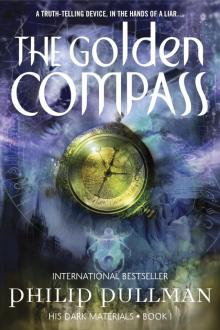 The Golden Compass
The Golden Compass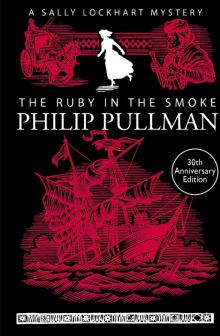 The Ruby in the Smoke
The Ruby in the Smoke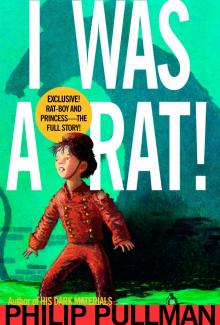 I Was a Rat!
I Was a Rat!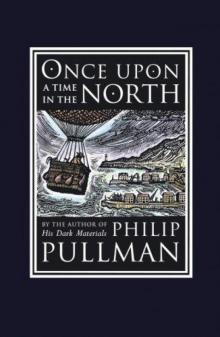 Once Upon a Time in the North
Once Upon a Time in the North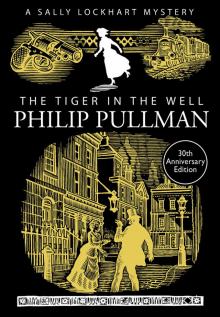 The Tiger in the Well
The Tiger in the Well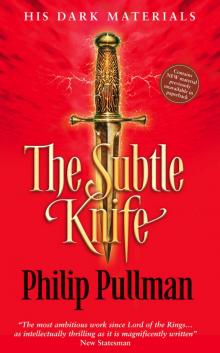 The Subtle Knife
The Subtle Knife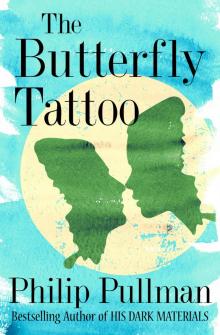 The Butterfly Tattoo
The Butterfly Tattoo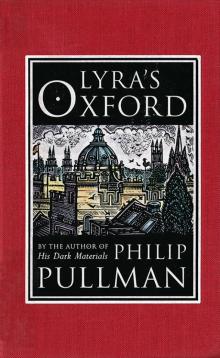 Lyra's Oxford
Lyra's Oxford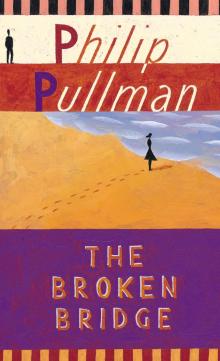 The Broken Bridge
The Broken Bridge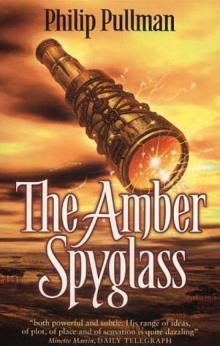 The Amber Spyglass
The Amber Spyglass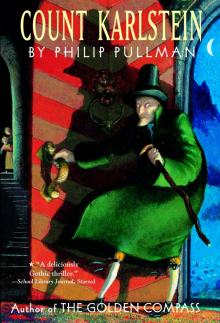 Count Karlstein
Count Karlstein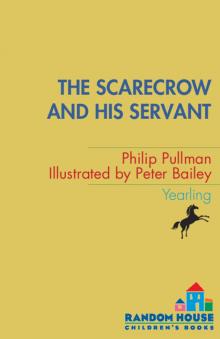 The Scarecrow and His Servant
The Scarecrow and His Servant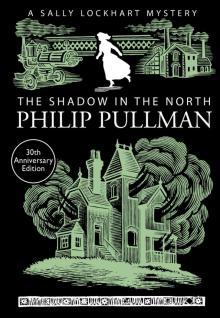 The Shadow in the North
The Shadow in the North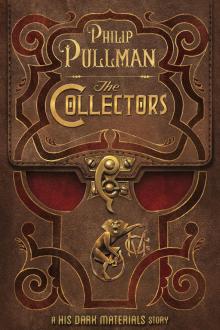 The Collectors
The Collectors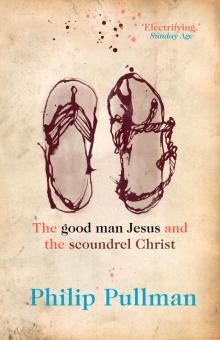 The Good Man Jesus and the Scoundrel Christ
The Good Man Jesus and the Scoundrel Christ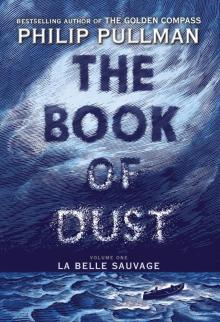 La Belle Sauvage
La Belle Sauvage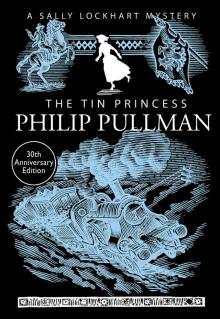 The Tin Princess
The Tin Princess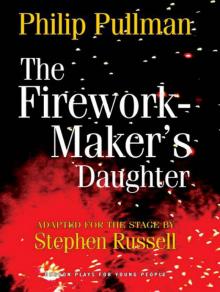 The Firework-Maker's Daughter
The Firework-Maker's Daughter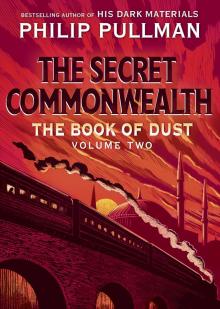 The Book of Dust: The Secret Commonwealth (Book of Dust, Volume 2)
The Book of Dust: The Secret Commonwealth (Book of Dust, Volume 2)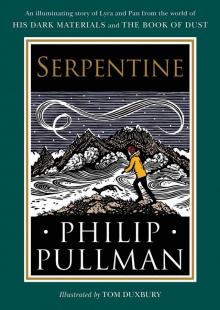 Serpentine
Serpentine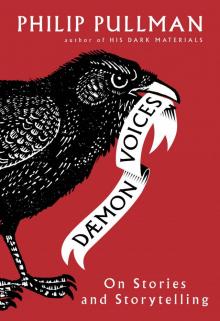 Daemon Voices
Daemon Voices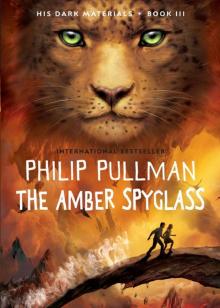 The Amber Spyglass: His Dark Materials
The Amber Spyglass: His Dark Materials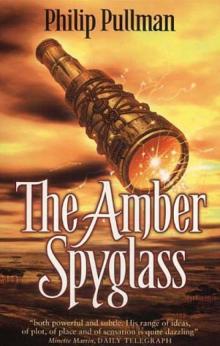 The Amber Spyglass hdm-3
The Amber Spyglass hdm-3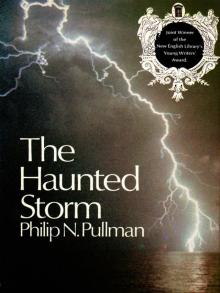 The Haunted Storm
The Haunted Storm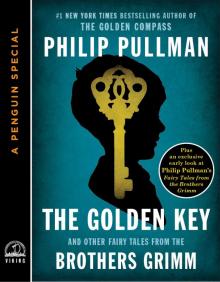 The Golden Key
The Golden Key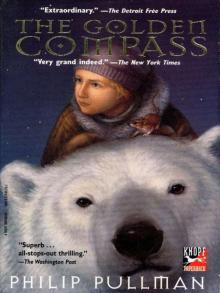 His Dark Materials 01 - The Golden Compass
His Dark Materials 01 - The Golden Compass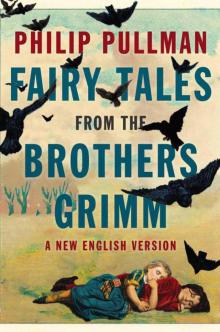 Fairy Tales from the Brothers Grimm: A New English Version
Fairy Tales from the Brothers Grimm: A New English Version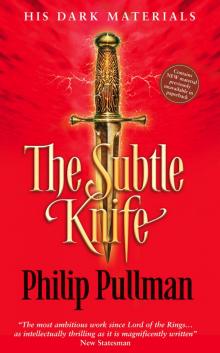 His Dark Materials 02 - The Subtle Knife
His Dark Materials 02 - The Subtle Knife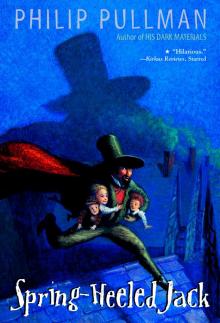 Spring-Heeled Jack
Spring-Heeled Jack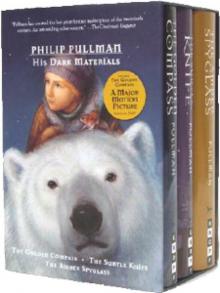 The Golden Compass hdm-1
The Golden Compass hdm-1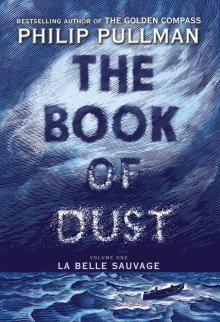 The Book of Dust, Volume 1
The Book of Dust, Volume 1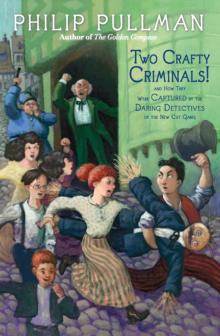 Two Crafty Criminals!
Two Crafty Criminals!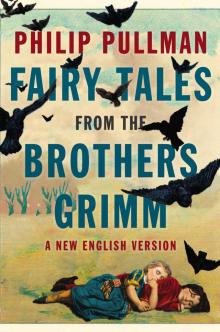 Fairy Tales from the Brothers Grimm
Fairy Tales from the Brothers Grimm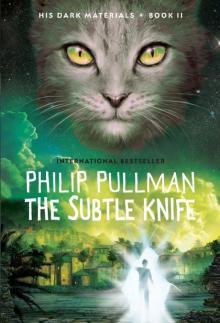 The Subtle Knife: His Dark Materials
The Subtle Knife: His Dark Materials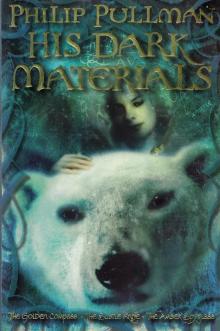 His Dark Materials Omnibus
His Dark Materials Omnibus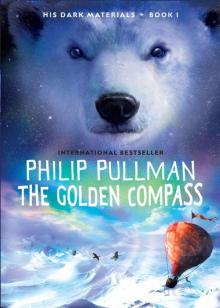 The Golden Compass: His Dark Materials
The Golden Compass: His Dark Materials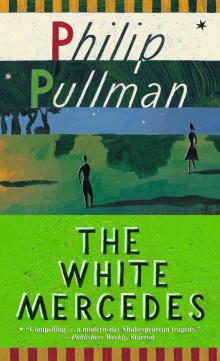 The White Mercedes
The White Mercedes